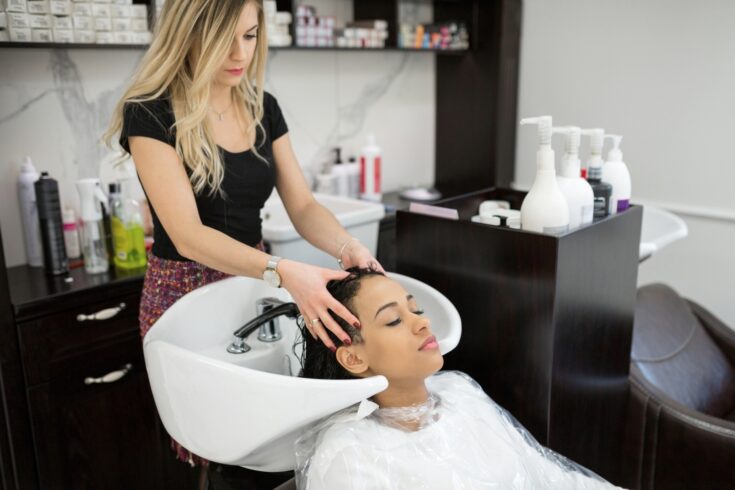The service sector accounts for 80% of the UK economy and uses lots of energy. There is clear potential to reduce carbon footprints in the resource-intensive hairdressing sector. Dr Denise Baden’s goal over the past six years has been to make industry practices more environmentally friendly.
Video credit: ESRC.
On-screen captions and an autogenerated transcript are available on YouTube.
About the project
Despite efforts to raise awareness of the challenges of sustainable development and environmental issues, individual behaviour has been slow to change. Even when people are aware of what they should do, a stronger driver of behaviour is what everyone else is doing. Attempts to change behaviour need to take into account social norms.
In Dr Baden’s research on environmental behaviour she studied hairdressers on the basis that they talk to more people than almost any other occupation, and are in a strong position to affect norms relating to hair care.
Surprisingly, she has found the key motivation for involvement is hairdressers’ desire to be seen as professional, and the chance to become part of the solution to carbon reduction rather than part of the problem.
“Hairdressers are in a unique position,” she explains. “The practices they model in the salon and the message they give to their clients about how to adopt ‘greener’ hair practice in their homes have the potential to make a world of difference – quite literally – in helping ensure the future sustainability of the planet.”
Lessons learned in bringing sustainability to the haircare sector are also transferable, she believes. The sector for small and medium-sized businesses is huge and the decision-makers are far more accessible than in large multinationals, with huge opportunities to introduce sustainable initiatives in hotels, restaurants, shops and other small businesses.
In April 2017, Dr Baden launched an online Sustainable Salon Certification and virtual salon training programme for salons and stylists. She ran more than 60 sustainability workshops and training events, targeting over 2,000 trainers, colleges and industry professionals to educate the sector about greener products and practices. She also developed a free website resource for colleges and salons to access training materials, presentations and information on eco-products and suppliers.
Impacts of the project
Dr Baden’s work has led to widespread adoption of sustainable practices in hair salons, which has reduced the carbon emissions resulting from this substantial industry.
Sustainable Salon Certificate and national occupational standards widely adopted
More than 50 salons and 1,000 stylists have gained the Sustainable Salon Certificate, which is endorsed by the Hairdressing Council, the Hair and Beauty Industry Authority and the Vocational Training Charitable Trust (VTCT). Now Dr Baden hopes to spread the initiative worldwide, starting with countries such as South Africa and Australia where water shortages are common and initiatives such as this could help.
Lynda Whitehorn, Apprenticeship Manager, VTCT service sector accreditation says: “Since 2014 all qualifications that have been written have now got sustainable practice built into them. The knock-on effect that we get is: a learner becomes the stylist, the stylist becomes the senior stylist, becomes the salon owner – and this is a self-perpetuating cycle within the industry.”
International eco-hair company Davines has meanwhile developed a training scheme based on Dr Baden’s certification for salons in the 85 countries worldwide that stock their products.
Dr Baden also shaped the sustainability component of the national occupational standards, which form the basis of training for the UK’s 14,000 hairdressing apprentices.
Energy and water savings in hair salons
Dr Baden’s work has led to the industry’s default recommendation for the UK’s 55,000 hairdressers to change from shampooing twice to just once. It has also led to the adoption of new water-saving sustainable technologies such as low-flow showerheads.
Adopting the changes identified in the Sustainable Salon Certification saves the average four seat salon:
- 286,000 litres of water
- 24,150 kWh of energy
- £5,300 a year.
Find out more
Dr Denise Baden is winner of Outstanding Impact in Business and Enterprise in the ESRC Celebrating Impact Prize 2018.
Read Dr Denise Baden’s study Applying behavioural theory to the challenge of Sustainable Development: Using hairdressers as diffusers of more sustainable hair-care practices in the Journal of Business Ethics.
Watch Eco Hair and Beauty’s Sustainable Salon promotional video on YouTube.
Read about Engaging hairdressers in pro-environmental behaviours on Gateway to Research.

